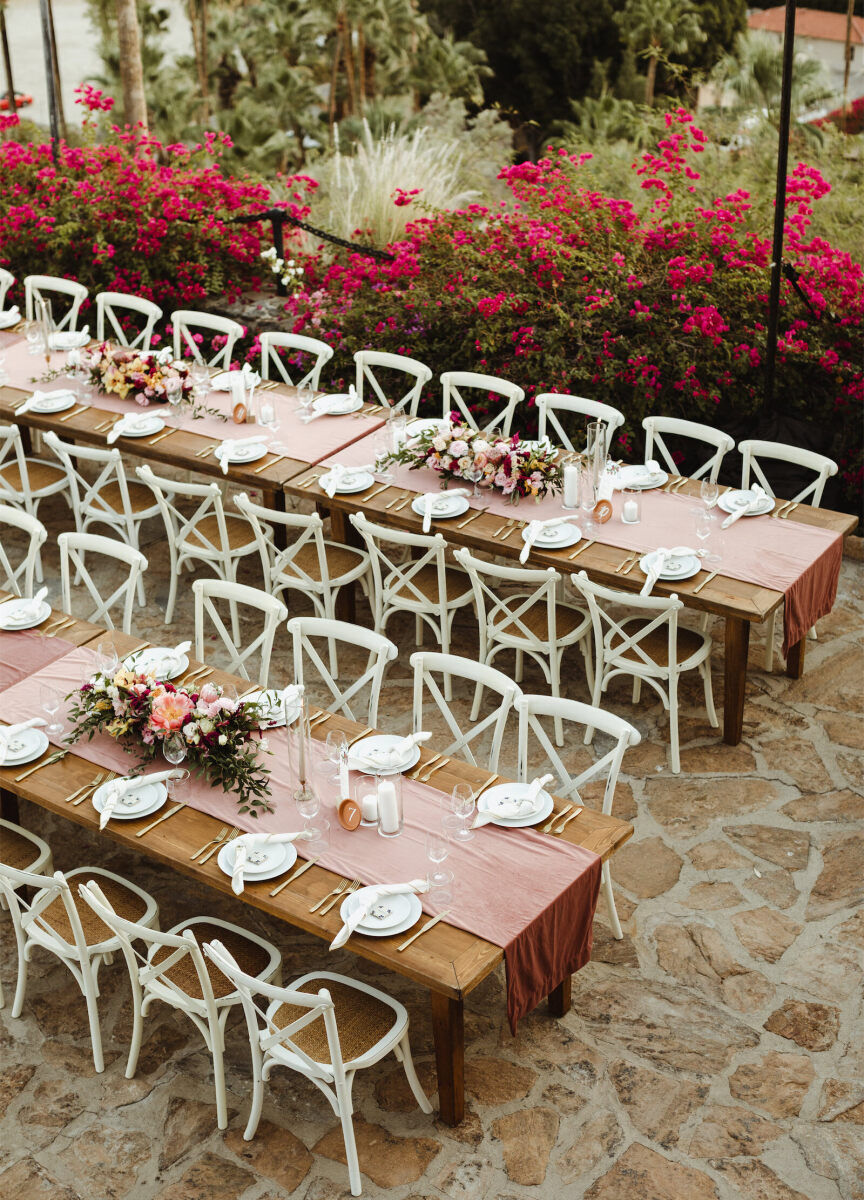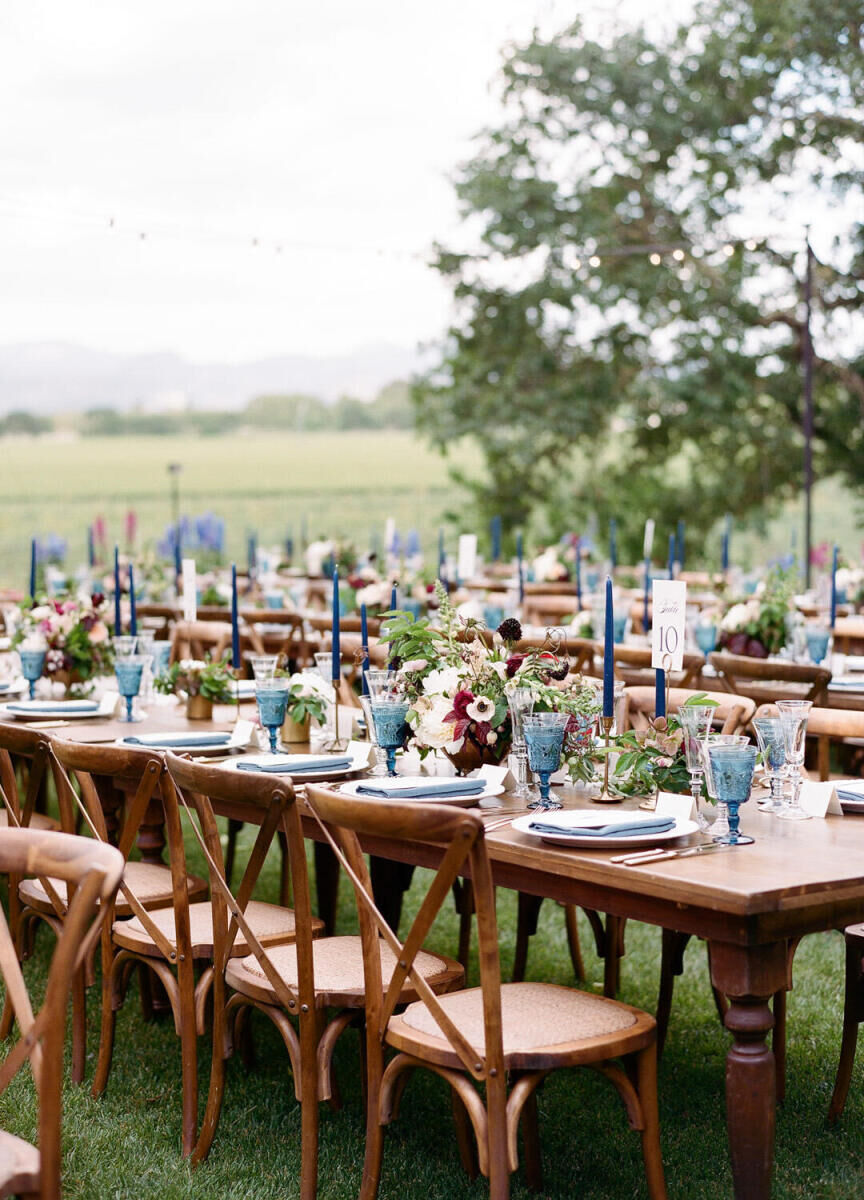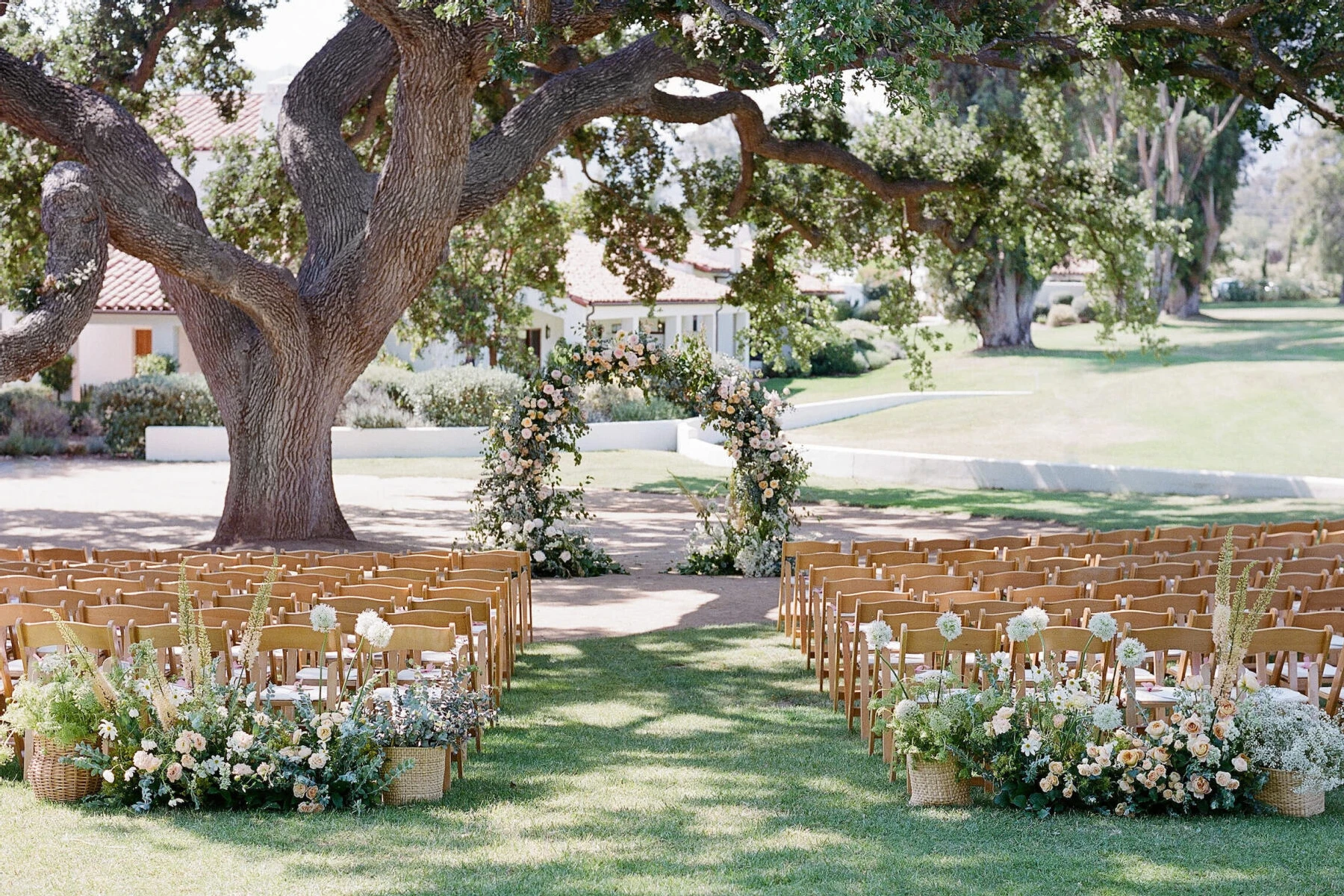Let’s get financial! There are so many joyous parts of your wedding countdown: the anticipation of sending out the save-the-dates, sampling a million cakes, and picking out the perfect dress—but dealing with the proper wedding etiquette around who pays for what is not usually one of them. Most couples want to enjoy almost every step of the planning process, but navigating who pays for what in a wedding can be awkward and confusing, especially when families get involved. Creating a financial plan and figuring out how to pay for the wedding is, however, one of the most important parts of the process. But what are the rules about who pays for what at a wedding?
Before we get into everything, it’s worth noting that while this is the traditional wedding etiquette around budgeting and tipping wedding vendors according to Emily Post and other experts, traditions held by these experts can often be a bit outdated. These old school rules are also not as inclusive to the LGBTQIA+ community, and often only list rules in a heteronormative format. You should absolutely consider your own personal preferences and comfort levels when evaluating what wedding budget rules to follow and which ones to leave in the past.





















